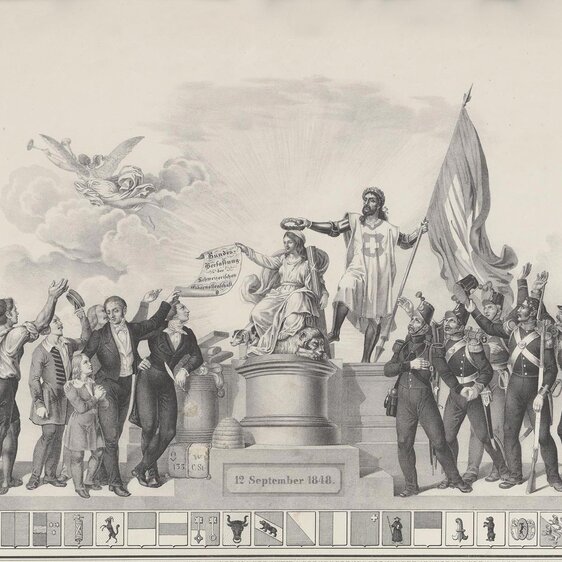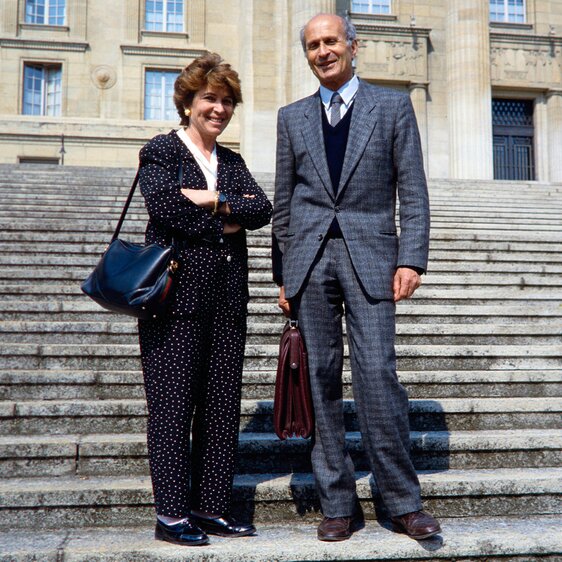National Museum Zurich
| 17.3.2023 - 16.7.2023
Switzerland has had a democratic constitution since 1848. The exhibition traces the 175-year history of the Federal Constitution, shining a light on fundamental rights and civil liberties. It invites visitors to take a playful look at Switzerland’s Constitution, which has been revised multiple times and which continues to shape our day-to-day lives – more than we might think.
1848 saw the creation of the Swiss federal state and with it, the first Federal Constitution – the country’s basic rule book and the centrepiece of every democracy. At the same time, the Federal Constitution in Switzerland is continually developed and refined by the electorate. Social change and political conflicts have led to a number of constitutional revisions.
The Federal Constitution was negotiated in just 51 days between February and April 1848. Following votes in the cantons, the Swiss Federal Diet enacted it on 12 September that year. The National Council and Council of States were elected, and the first Federal Council appointed. This story has been told many times before, which is why the exhibition at the Swiss National Museum focuses instead on the development of fundamental rights and civil liberties. On the one hand, the first Constitution only explicitly set out sporadic fundamental rights, such as freedom of the press and religious freedom. On the other, civil liberties – such as suffrage, freedom of establishment and conscription – initially only applied to men of Christian faith.
It took decades-long political discussions and wrangling to make the Federal Constitution into a basic legal document applying to the majority of the country. It also required numerous adaptations and amendments and two complete revisions. Along the way, however, it was not only the Constitution that changed, but also – in a related manner – the form of government. While the federal state was a representative democracy in 1848, it became a direct democracy with the introduction of the optional referendum in 1874 and the right to submit initiatives in 1891.
Women were also granted full civil liberties in 1971, which meant that Switzerland's democracy doubled in size overnight. Just three years later, in 1974, the development of fundamental rights in Switzerland got a further boost with the ratification of the European Convention on Human Rights, which has significantly influenced the administration of justice in Switzerland ever since. More recent fundamental rights, such as the protection of privacy and the right to a fair trial, were added to the Federal Constitution when it was completely revised in 1999.
The Federal Constitution now impacts people’s day-to-day lives more than many might think. Fundamental rights define scope for action and protect against disproportionate state intervention. Four interactive games allow visitors to explore the path to citizenship, the limits of free speech, the protection of privacy and the right to a fair trial.
The National Museum Zurich joins visitors to explore the eventful history of the Federal Constitution and through interactive games helps people understand what it means to have fundamental rights. Because the Federal Constitution is more than just a revered document. It is part of our lives and affects us all. On this note, wishing everyone a happy you have rights day.



